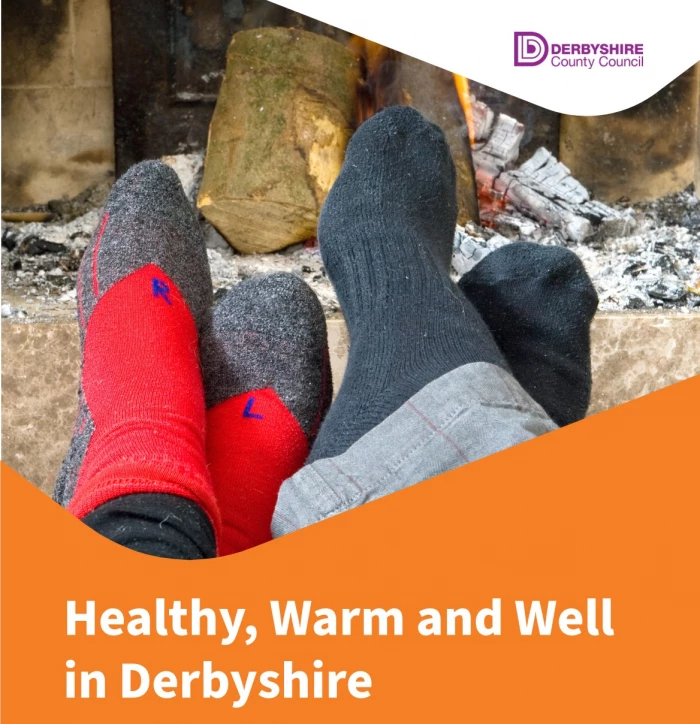Caring can have an impact on a Carers income and expenditure. This can include having to reduce hours at work, costs of transport and parking for treatments or having to be at home more resulting in an increase of fuel costs. There may be ways to increase your income, such as benefits for you or the person you care for, or support with living costs.
Benefits
There may be benefit support for you and/or the person with care needs to help you live independently or support reduction of income
For a list of possible benefits, eligibility and how to apply, please visit possible benefits. You can check your entitlement to welfare benefits using the Turn2Us benefits Calculator.
Our Carer Money Matters Project can help ensure that you are getting all the benefits you can are eligible for. Please see our Money Matters Project web page for more information.
Or you can contact the Derbyshire Welfare Rights Team for more advice:
- email welfarebenefits@derbyshire.gov.uk
- call: 01629 531535 on Mondays, Tuesdays and Thursdays from 10am to midday, and 2pm to 4pm
Support with energy bills from Carer Money Matters
We know it’s not easy to balance caring responsibilities and finances, so we can help you to access the support you need to manage your money and energy bills.
Our advisers can talk to you about your money matters when it comes to energy costs, benefits and a host of other areas too and we can help you access free debt advice and support.
Please see our Money Matters Project web page for more details about how we can support you with your benefits and energy bills.
Other organisations than can help with cost of living
Warmer Derby and Derbyshire are part of independent registered charity, Marches Energy Agency. They are the specialist energy partner for our Money Matters Project and provide free and impartial advice to help people living in Derbyshire keep warm and well at home. This includes information on energy bills, debt and tariffs, insulation and heating grants and energy efficient measures. Call: 0800 677 1332
If you are having issues with your energy supplier such as you are behind with your payments or struggling to make payments, Citizens Advice have a free helpline where they can discuss all issues connected to your energy. Call: 0808 223 1133
Energy Saving Trust have an online resource site that gives practical tips on how to save energy and reduce bills at home. This can include draught proofing, reducing heat home loss and guides to smart meters.
Help with the costs of day-to-day activities
As a Carer, you may be entitled to discounts or free entry on a range of products, days out and short breaks. Please see factsheet for more information.
Help with Council Tax
If you are on a low income or the person with care needs lives with certain conditions, you may be entitled to council tax reduction. You have to apply to your local council as each one has their own eligibility. To find your local council please search here For more information on help with council tax, please see the Carers UK factsheet.
Managing someone else’s money
If the person you care for is unable to manage their own affairs, you may be responsible for their finances. Age UK Derbyshire and partners have designed a helpful top tips for if you are managing someone else’s finances find it here.
Help towards the cost of care
If the person with care needs requires care at home from the local authority, such as help with personal care, there may be help towards these costs. Most people make some contribution towards these costs, but how much is paid is calculated from an assessment.
Self-funding
If the person with care needs has over a certain amount of savings or income, they may have to pay for all of the care they receive. The local authority will still help with an assessment and finding a care service through Adult Care brokerage.
Co-funding
If the person with care needs has lower than the threshold for self-funding then they may have to contribute toward their care costs. This is called co-funding. The amount that is paid is calculated after an assessment. If the person isn’t in receipt of certain benefits, the council will help to apply to help towards these costs. Find out more about Financial Assessment.
Community Care
Community care is any care that people receive in their own homes or in their local community, including care at home, day centres, supported living, respite care and direct payments. You can find out more about Paying for non residential care.
Residential care
Paying for residential care fees is calculated on the person’s income, savings and assets such as if they own their own home. For more information on residential care fees please visit Paying for residential care.
Continuing healthcare
Some people living with long-term complex health needs qualify for free social care which is arranged and funded solely by the NHS. This is known as NHS continuing healthcare.
NHS continuing healthcare is for adults. Children and young people may receive a "continuing care package" if they have needs arising from disability, accident or illness that cannot be met by existing universal or specialist services alone. The care can be provided in settings outside of the hospital including the person’s home or a care home. For more information, please visit NHS continuing healthcare.
We can help ensure that you are getting all the support you can regarding your energy bills and benefits. Please see our Money Matters Project web page for more information.






